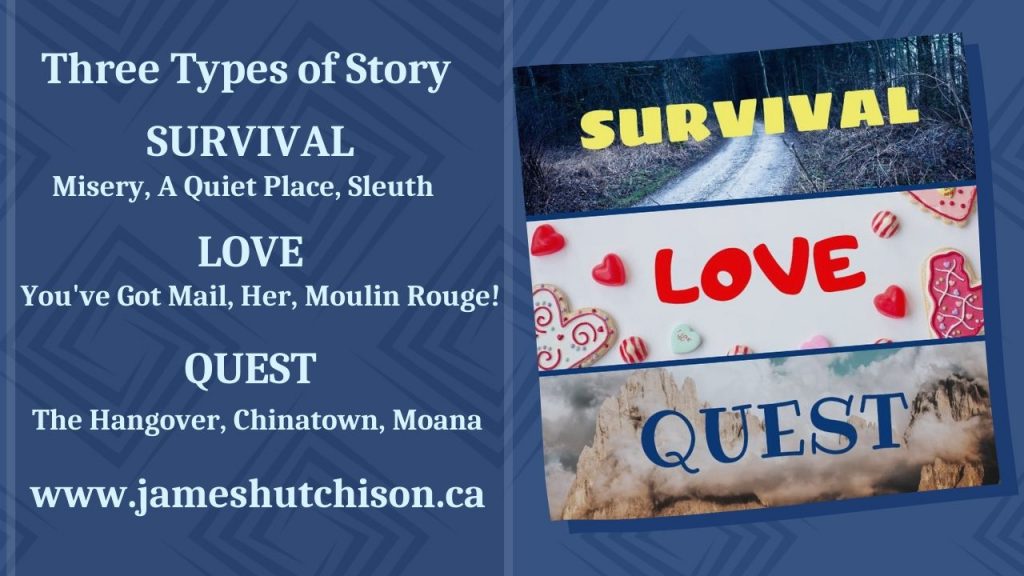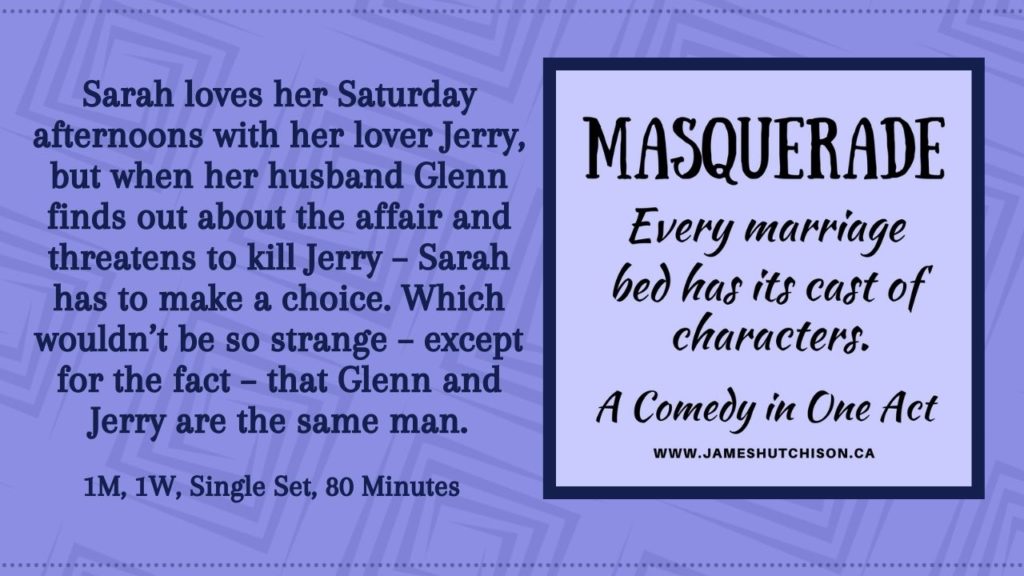
How do you write a good story? Well, I think a big part of it comes down to creating believable characters. Flawed characters. Characters that reflect the whole range of human behaviour.
In real life, people want to find love and success and figure out a way to be content with the world. And there’s certainly no shortage of books and seminars out there telling you how to meditate and find peace of mind, how to take it one day at a time, or how to reach for the stars and achieve your dreams.
If you’re looking for an insightful book that provides useful suggestions about how to live a happier life you might want to pick up The Four Agreements by don Miguel Ruiz. Have you heard about the four agreements? Do you know about Toltec Wisdom? If you haven’t – give this little book a read, or at the very least pick it up and put it on your bucket list.
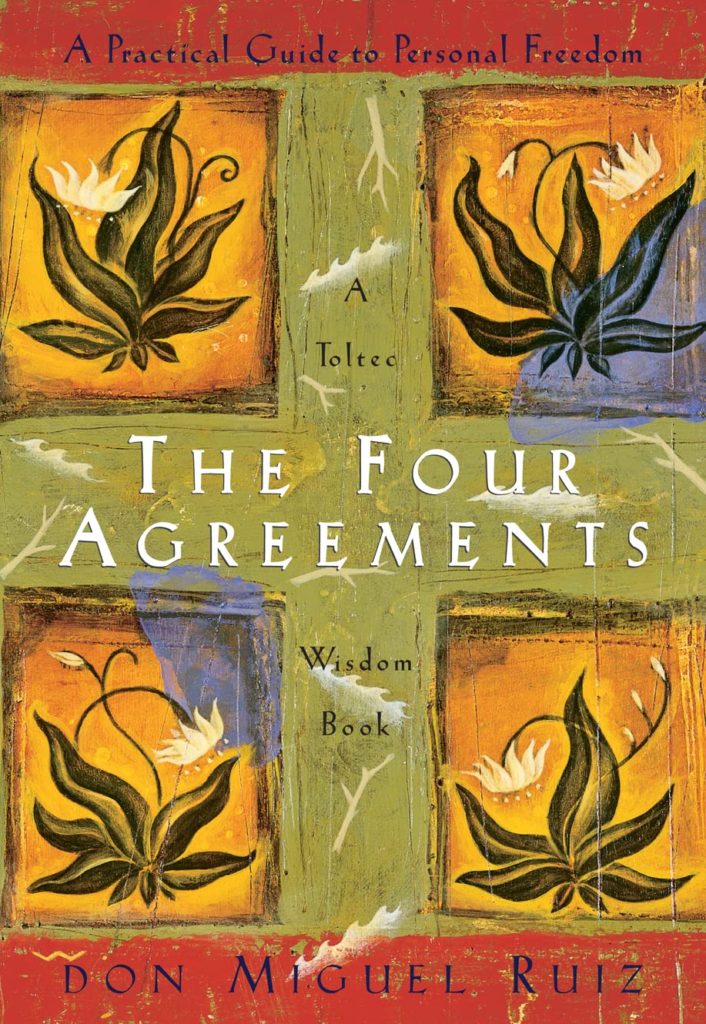
The Four Agreements are:
- Be impeccable with your word
- Don’t take anything personally
- Don’t make assumptions
- Always do your best
These four agreements are a guide to reducing conflict, creating peace of mind, and fostering a better world. But when it comes to telling a good story there wouldn’t be much of a story to tell if people always told the truth and never made assumptions. People lie all the time. They’re selfish. Some are sociopaths. Do you really think a sociopath cares about anyone else?
So, with apologies to don Miguel Ruiz and nods to all the stooges, clowns, buffoons, jesters, writers, filmmakers, playwrights, poets, musicians, and scribes in the world here’s a look at the dark side of human nature – the opposite side of the four agreements. Because if you’re going to write a good story then the characters have to be believable, and people often choose the dark side – they lie and cheat and act in selfish ways. And sometimes people lie and cheat to achieve what they think is the greater good.
So, let’s look at the good side of people and the bad side of people when creating a story because no human is entirely good or entirely bad.
The First Agreement: Be Impeccable with Your Word.
The first agreement is to be impeccable with your word. To speak with integrity. Say only what you mean. Avoid using the word to speak against yourself or to gossip about others. Use the power of your word in the direction of truth and love. *
That sounds like good advice. Be truthful. I like that. I don’t always do it. Nobody does. But it’s a good thing to keep in mind because lies are insidious. They can transform us and change who we are.
But it’s not just individuals that lie. Corporations lie. Governments lie. Entire nations can lie. In fact, one of the things our new information age has made faster than ever is how quickly a lie can spread until it overshadows the truth. And let’s face it if everyone told the truth Sherlock Holmes, Hercule Poirot, Mike Hammer, and Lieutenant Columbo would be out of a job.
The Flip Side of the First Agreement: Lie.
So, to write a good story why not try the flip side of the first agreement and instead of telling the truth – lie. Do not say what you mean. Gossip and use the power of your word to be deceitful, jealous, and malevolent.
Is that any way to live? Of course not. But if you’re writing a good story lying can be a useful device. Is Tony Soprano impeccable with his word? No. Does Daemon Targaryen use the power of his words in the direction of truth and love? Of course not. Does Homer Simpson always tell Marge what he’s up to in The Simpsons? Rarely.
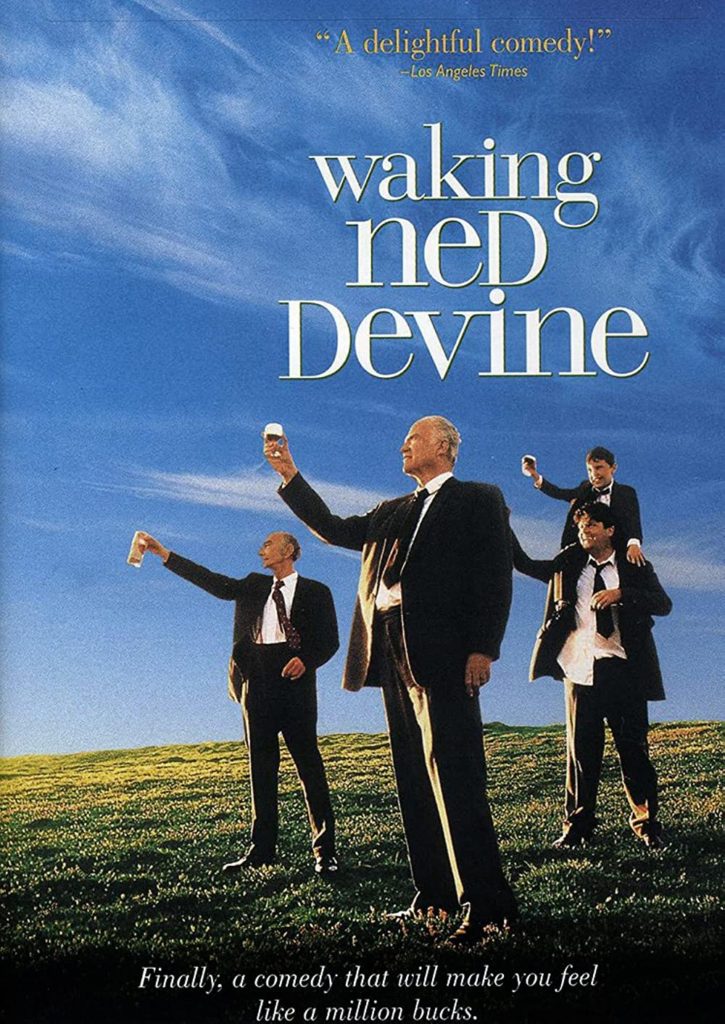
So, if you want to write a good story let the half-truths, deceptions and lies power your story. Just remember in fiction, as in life, the lies are usually discovered. And when that happens there are usually consequences.
If you’re looking for a movie where the lie is central to the story look no further than Waking Ned Devine. Waking Ned Devine is a film set in Ireland and tells the story of a small town where Ned Devine has won the national lottery. Unfortunately, Ned is dead. And so, the entire town decides to pretend that one of the other members of the community is actual Ned so that they can claim the lottery and split it amongst all the members of the community.
It’s a wonderful film filled with genuine warmth and terrific characters, and it shows that while we often think of lies as being a negative thing – in this particular film – the lie serves to show the warmth and love and joy of being part of a small town. I’d highly recommend it. If you’re looking for a terrific warm-hearted comedy to watch, then I’d suggest you gather your own family and friends around the digital box and enjoy an evening with Ned Devine.
The Second Agreement: Don’t take anything personally.
The second agreement is not to take anything personally. You need to remember that nothing others do is because of you. Instead, what others say and do is a projection of their own reality and their own dream. When you are immune to the opinions and actions of others, you won’t be the victim of needless suffering. *
I guess that means you should forget what the critics say. Good or bad. Well unless it’s good. Good reviews help sell tickets, do they not? We are herd animals, after all, and we do seek out the opinions of others and in particular, our peer group when it comes to our choice of clothing, career options, and entertainment.
But if you allow yourself to be happy or unhappy based on the actions and opinions of others – every day will be an emotional rollercoaster. Are you happy because the sun is out or unhappy because it’s raining? We need rain just as much as we need sunshine so don’t let the weather or the opinions of others rule how you feel. But that’s a whole lot easier said than done, I know.
I mean who hasn’t been hurt? Who hasn’t hurt others? And often the hurt is unintentional. But if you’re trying to write a good story then having characters that are reasonable or forgiving or are immune to the actions and opinions of others doesn’t offer you a lot to work with. So instead of not taking anything personally maybe your characters should take it personally.
The Flip Side of the Second Agreement: Take things personally.
The flip side of not taking anything personally is to be offended. If you want to write a good story let the opinions and actions of others determine your actions. Revenge, jealousy, and anger are just three of the many emotions your characters can feel when they are easily offended or feel wronged. The pompous, the self-righteous, and the fanatic are all characters fueled by their need to be right.
Those who are offended often want revenge and without revenge, there would be no second pie thrown in a pie fight. There would be no deadly games played by Dr. Evil and Austin Powers. Sunshine or rain there would be no Frank, Charlie, Dennis, Mac, or Dee in Philadelphia. No Selina Meyer. No Liz Lemon. No Michael Scott. No Basil Fawlty. No Hangover! No Galaxy Quest! No Arsenic and Old Lace! In comedy, when you turn the other cheek, it usually gets slapped.

If you’re looking for a story where revenge drives much of the action look no further than Game of Thrones or Star Trek II: The Wrath of Khan or John Wick. In all of those particular stories, revenge plays a central role in motivating the characters and driving the plot. I recently rewatched the entire series of Game of Thrones for the first time since the show ended back in 2019. Binge-watching Thrones made certain themes more obvious and one of the themes that powers much of the action for both “good” and “evil” characters is the desire for revenge.
Sansa Stark arranges for the vile and wicked Ramsay Bolton to be eaten by his own dogs. Cold-hearted and ruthless Tywin Lannister is murdered with a crossbow while sitting on the privy by his own son Tyrian Lannister. The double-crossing and lecherous Walder Frey has his throat cut by Aria Stark. Sansa, Aria, and Tyrian are easily three of the more sympathetic characters in Game of Thrones, but they are not above taking revenge. And as an audience, we love to see the underdog win. Because most of the time, in life, the underdog doesn’t win. Most of the time the underdog is crushed and destroyed and left with little opportunity for any sort of recourse, justice, or revenge.
Usually in a comedy revenge doesn’t reach such murderous heights as it does in Game of Thrones unless, of course, you’re talking about Ready or Not or Zombieland. No, in most comedies the revenge is something less lethal more like Jim Halpert from The Office putting Dwight Schrute’s stapler in a Jell-O Mold. Watching the war between Jim and Dwight trying to outsmart and outmaneuver each other is fun because the battle between the two is never won. Victory is only temporary. There are many more battles to be fought.
The Third Agreement: Don’t make assumptions.
The third agreement is to not make any assumptions. Instead, you need to find the courage to ask questions and to express what you really want. You should communicate with others as clearly as you can in order to avoid misunderstandings, sadness, and drama. With just this one little agreement, you can completely transform your life. *
How many times have we assumed something and then lived to regret it? The truth is we make assumptions every day. We make assumptions about people’s motives and desires and character. I think the assumption is one of the most powerful tools for writing a good story. Who doesn’t chuckle to themselves when they watch the ending scene of Romeo and Juliet where Romeo thinks Juliet is dead, but she isn’t dead and Romeo not knowing this kills himself? Okay well maybe that’s not funny but it shows – how on stage – and by extrapolation life – jumping to conclusions can have deadly consequences.
But Romeo and Juliet is a tragedy – nobody dies in a comedy – or is that an assumption? There were more than a few deaths in The Grand Budapest Hotel and the entire world was destroyed in Dr. Strangelove. So, death and comedy are not mutually exclusive. Death being a part of the human condition is often the subject of both comedy and tragedy.
The Flip Side of the Third Agreement: Make assumptions.
So, the flip side of not making assumptions is to make assumptions. If you want to write a good story have your characters make assumptions about people’s motives and desires. Never ask questions. Assume that all gossip is gospel and that there could never be another explanation for things other than the one you believe.
Assumptions fuel misunderstandings and create characters working at cross purposes. Part of its power lies in the fun of letting the audience in on the secret. Tootsie, Mrs. Doubtfire, and Some Like it Hot would lose a lot of the comedy if we didn’t know that Tootsie was in reality Dustin Hoffman, Mrs. Doubtfire was actually Robin Williams, and Daphne was really Jack Lemmon. Other characters operate from the assumption that each of these characters is what they appear to be – a woman. But we know better, and the fun comes from the exploration of gender roles and sexual expectations in combination with the ever-present possibility of discovery.
Of course, if you want to write a good story this doesn’t mean you can’t hold something back. After all, Sleuth would lose a great deal of its fun if we knew from the start exactly what was going on. I’m assuming, of course, that you’ve read Sleuth. You have read Sleuth, haven’t you? Seen the movie? Not the Michael Caine – Jude Law version but the Michael Caine – Laurence Olivier version. If you haven’t seen it or read it maybe go and see the movie or read the play or at the very least add it to your bucket list.
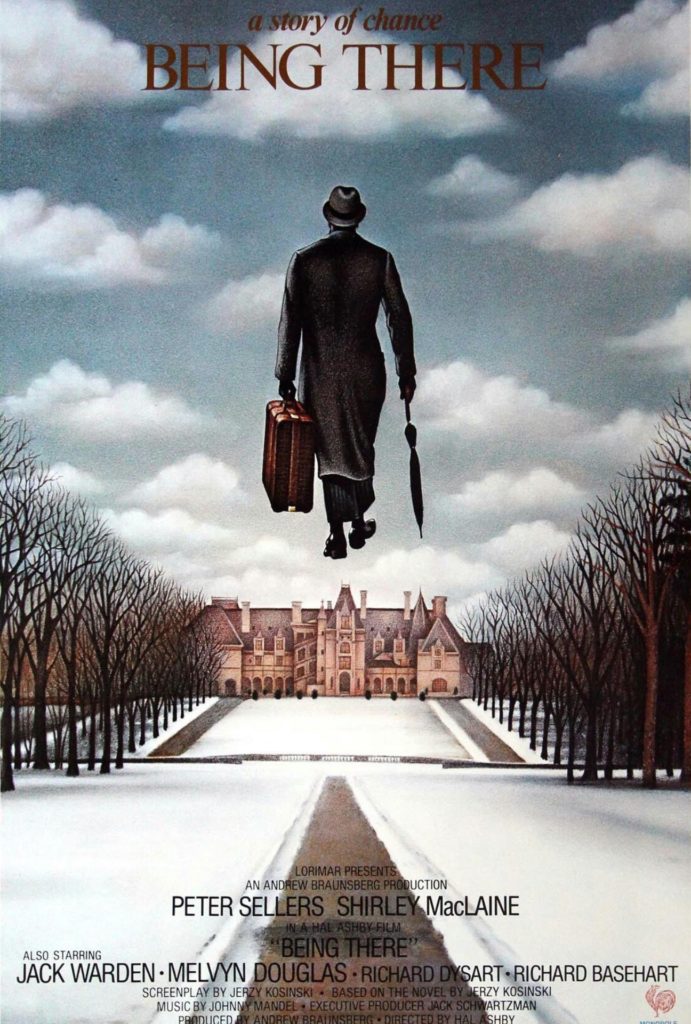
One of my favourite comedies is Being There starring Peter Sellers as Chance the Gardner. In the film, Sellers plays a man of simple mind who has spent his entire life living an isolated existence in a home with a walled yard where he spends his time gardening and watching television. In fact, his entire knowledge about the outside world is based on what he’s seen and heard on the boob tube. When the “Old Man” who owns the home dies Chance is forced out into the real world for the first time.
The humour comes from the fact that the audience knows Chance is a simple man who only talks about gardening, but every other character in the story from billionaires to the Russian Ambassador to late-night talk show hosts assumes that Chance means more than what he says and thereby reinterpret his words to be much more profound. The result is that by the end of the movie Chance finds himself rubbing shoulders with the political and business elite in Washington D.C. and is even being considered as a possible candidate for President of the United States.
The Fourth Agreement: Always do your best.
The fourth and final agreement is to always do your best. But you need to remember that your best is going to change from moment to moment; it will be different when you are healthy as opposed to sick, but under whatever circumstances you find yourself, simply do your best, and you will avoid self-judgment, self-abuse, and regret. *
I actually really like this agreement because it acknowledges that our best fluctuates. We’re human. We’re not machines. And so sometimes when we look back on our lives, we feel we should have done better. But understanding that we’re not always able to be in top form allows us to look at our life with a little more compassion. Maybe we were tired or hungry or had just been through some challenging life event and our ability to respond was compromised. But of course, sometimes even when we’re in top form we don’t always do what’s best for ourselves or for others.
The Flip Side of the Fourth Agreement: Always do your worst.
And of course, the flip side of always doing your best is to always do your worst. If you want to write a good story have your characters try to find the easy way out. Look for shortcuts. Lie their way out of deadlines. Make excuses. Avoid the hard work or try to get others to do it for you.
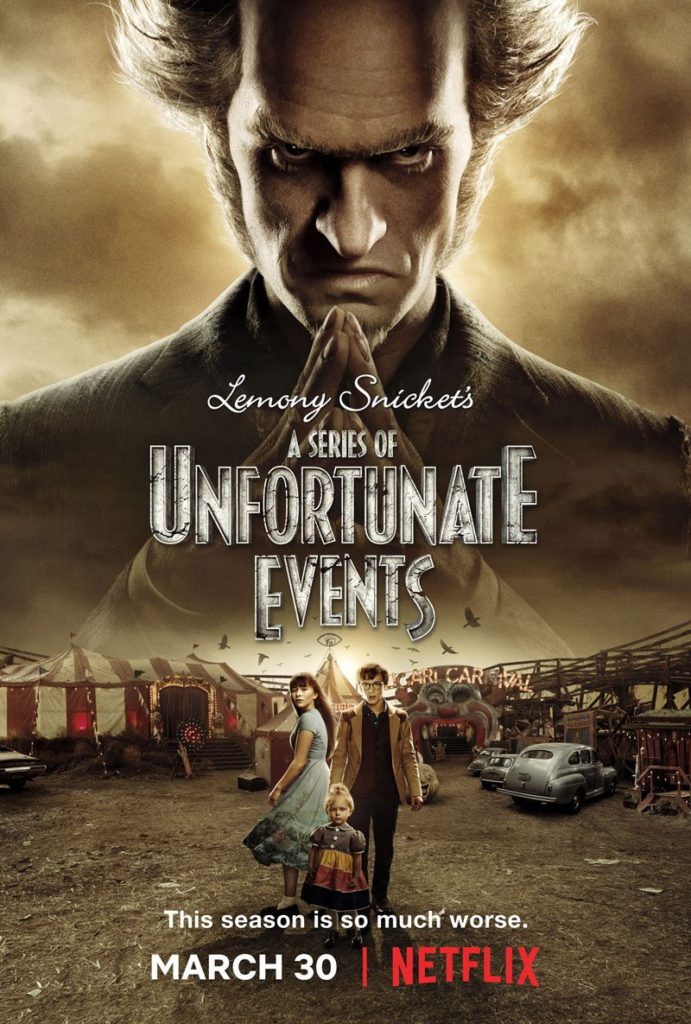
Comedy thrives on the misadventures of the underachieving incompetent. Think of Inspector Clouseau searching for the Pink Panther – The Three Stooges fixing a leaky faucet – or Homer Simpson trying to prevent a nuclear meltdown. Do the Stooges see themselves as incompetent? No. They see themselves as helpful. Does Inspector Clouseau believe in his crime-solving abilities? Of course, he does. Does Homer’s incompetence prevent him from becoming an astronaut or a secret agent? No. Instead, Homer’s incompetence combined with his predilection to being an underachiever makes the comedy twice the fun.
Of course, the other aspect of doing your worst is causing chaos and destruction. A good villain operates from just such a principle. And one of my favourite villains is Count Olaf from Lemony Snicket’s A Series of Unfortunate Events. A Series of Unfortunate Events is the story of the Baudelaire orphans, Klaus, Violet, and Sunny and Count Olaf’s relentless attempt to steal their inheritance through a number of villainous acts including murder, kidnapping, and arson. Does he succeed? You’ll have to read the books or watch the brilliant Netflix adaptation to find out, but rest assured in the process of going after the Baudelaire orphans Count Olaf leaves behind him a rather long path of death and destruction.
In Life
So, in life, it’s probably not a bad idea to try and follow the four agreements, but if you want to write a good story then you might want to consider the flip side. Because as good as we try to be we don’t always succeed. Sometimes we get jealous. Sometimes we lie to get what we want. Sometimes we cheat. And even though life is tough we often make it tougher by how we live and the choices we make. Just consider the case of George Costanza from Seinfeld. George truly embraces the flip side of the four agreements. He lies. He takes things personally. He makes assumptions. And he seldom does his best. George is a shining example of how not to live your life.
And that’s why we have stories. We’re all flawed humans struggling to make sense of our world and our place in it. Comedy lets us laugh at our struggles and tragedy lets us weep at our flaws. Stories help us cope with our failures. They help us to understand what it means to be human. They allow us to appreciate our good side and acknowledge the dark side and help us to have a deeper understanding of the human condition.
* The Four Agreements – A Toltec Wisdom Book – A Practical Guide to Personal Freedom by Don Miguel Ruiz Amber-Allen Publishing San Rafael, California Copyright © 1977 by Miguel Angel Ruiz, M.D.
